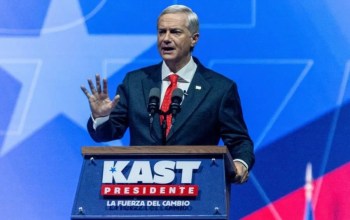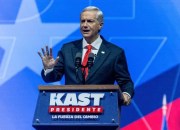
President Donald Trump has unveiled a bold proposal to issue $2,000 checks to most Americans, funded entirely by tariffs on imported goods. The plan, announced via a public statement, is positioned as a major economic stimulus measure designed to put cash directly into the hands of citizens while maintaining a revenue-neutral approach for the federal budget.
According to Trump, the initiative would provide direct financial relief to households struggling with rising inflation and living costs, particularly amid ongoing economic uncertainty. By leveraging tariffs on foreign imports, the proposal aims to generate the necessary revenue to fund the checks without adding to the national deficit, a point emphasized repeatedly by Trump and his economic advisors.
The proposal has drawn immediate attention from lawmakers, economists, and the media. Supporters argue that the plan could inject significant liquidity into the consumer economy, boosting retail spending and invigorating domestic markets. They also highlight that direct payments, rather than tax credits or subsidies, provide immediate relief to working families and low- to middle-income households, creating a tangible impact on household budgets.
Critics, however, have raised concerns over potential consequences for trade relations and international commerce. Economists warn that funding stimulus checks through tariffs could increase costs for consumers, as importers may pass on the added expense, potentially reducing the net benefit of the $2,000 payments. Additionally, trade partners may view the measure as punitive, sparking disputes that could escalate into retaliatory tariffs or strained diplomatic ties.
The plan also carries political implications, as Trump positions himself as a champion of everyday Americans, directly addressing concerns over inflation and purchasing power. By linking the checks to tariffs, the proposal appeals to voters who support more assertive trade policies, emphasizing the administration’s commitment to protecting domestic industries and promoting economic self-reliance.
Policy analysts note that while the idea of stimulus checks is popular, the method of funding remains highly contentious. Some argue that relying on tariffs to finance large-scale payouts could inadvertently affect supply chains, increase costs for U.S. businesses reliant on imported goods, and potentially slow economic growth if trade tensions rise. Others, however, see the approach as a clever way to redistribute wealth generated by international trade in a manner that benefits domestic consumers.
If implemented, the plan would mark a significant expansion of Trump-era economic policies, combining direct financial support with trade enforcement. The proposal underscores a continued focus on populist economic measures, designed to appeal to both core supporters and households seeking immediate fiscal relief.
As the proposal gains attention, lawmakers and the public will closely scrutinize its feasibility, economic impact, and potential to navigate complex trade and legislative hurdles. With the stakes high, the debate over Trump’s $2,000 checks is likely to dominate political and economic discussions in the weeks ahead.
Watch video below :












